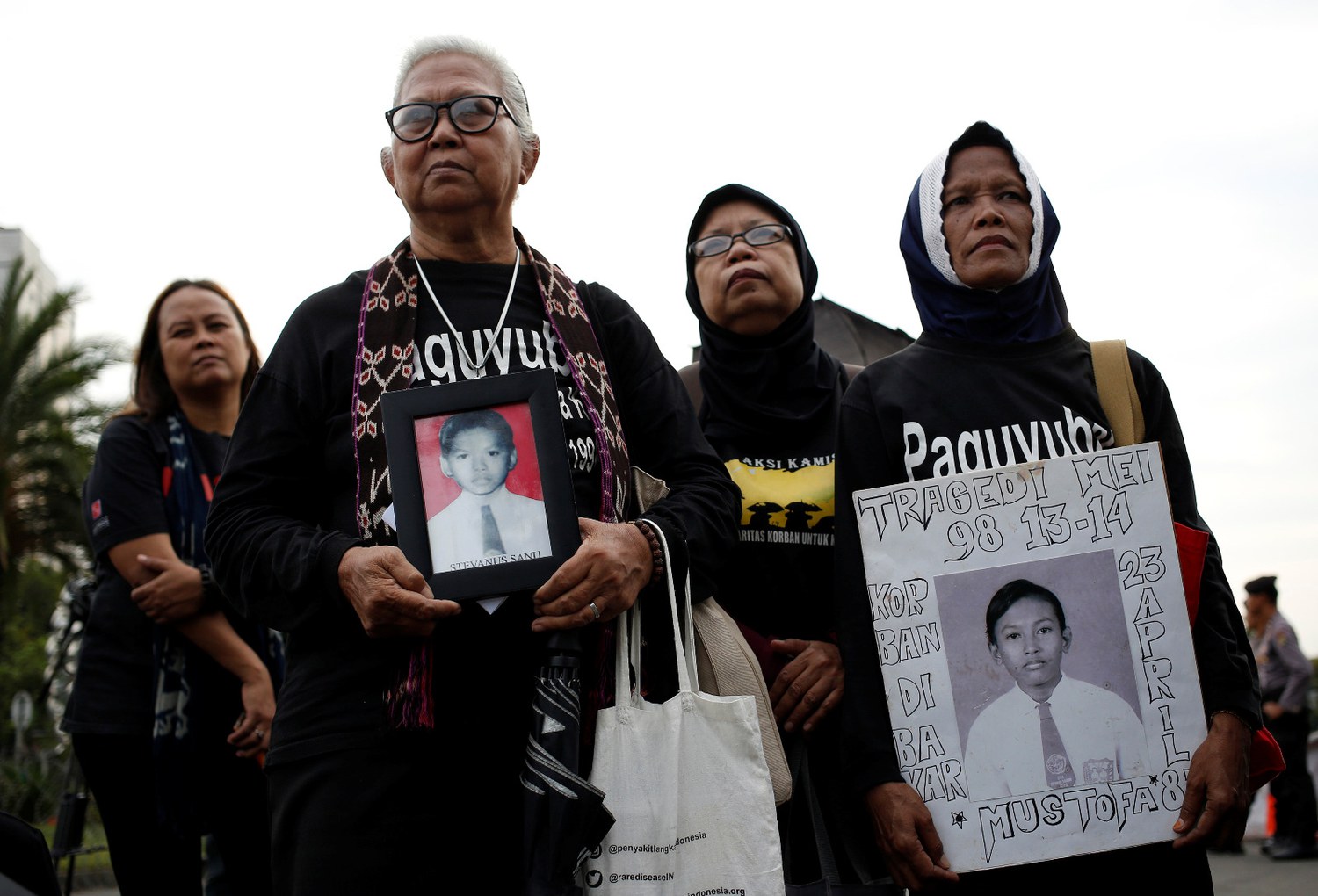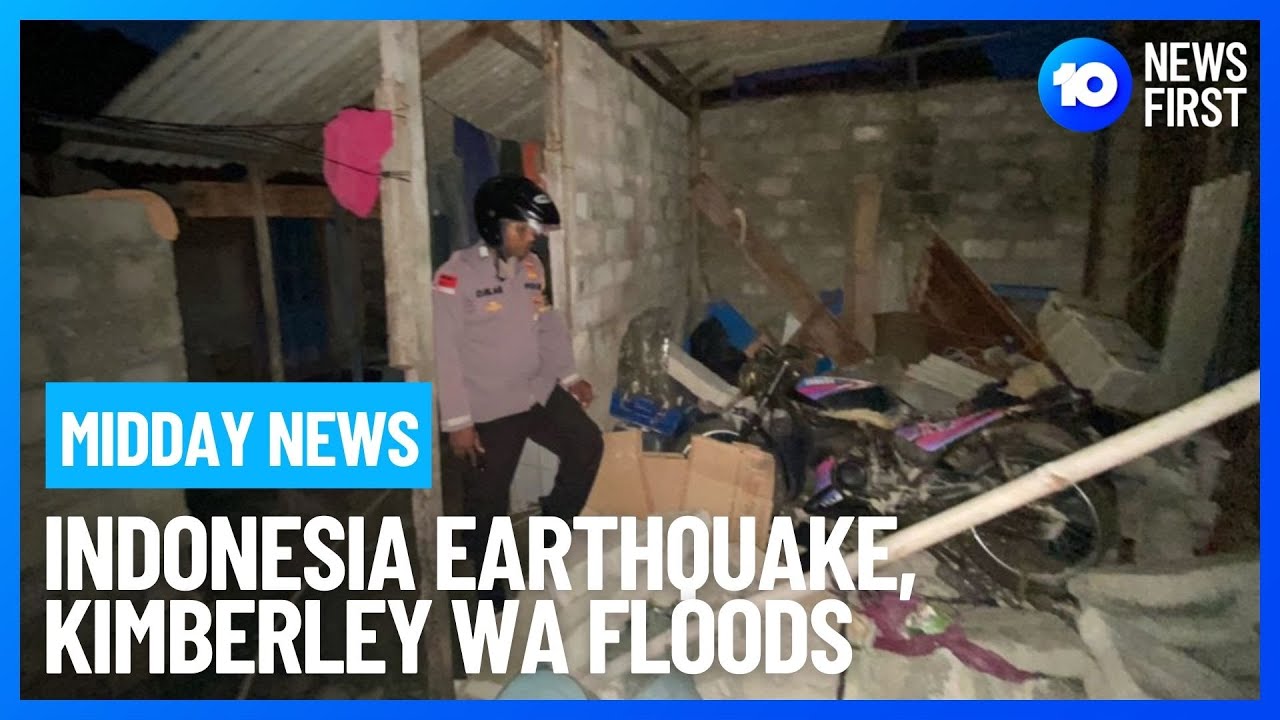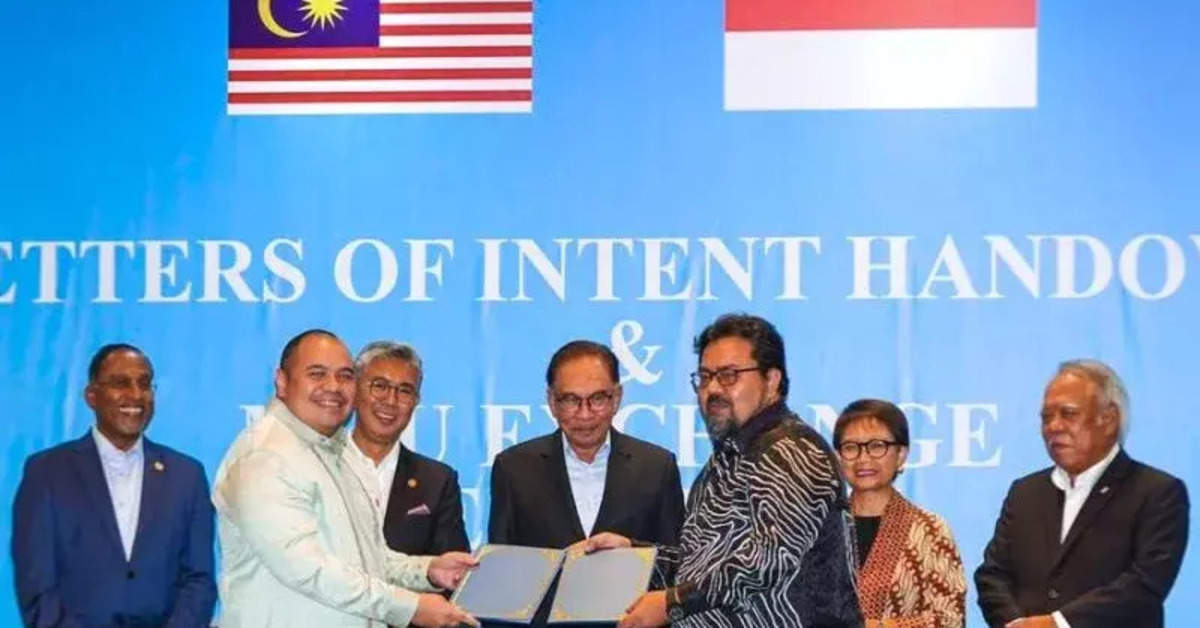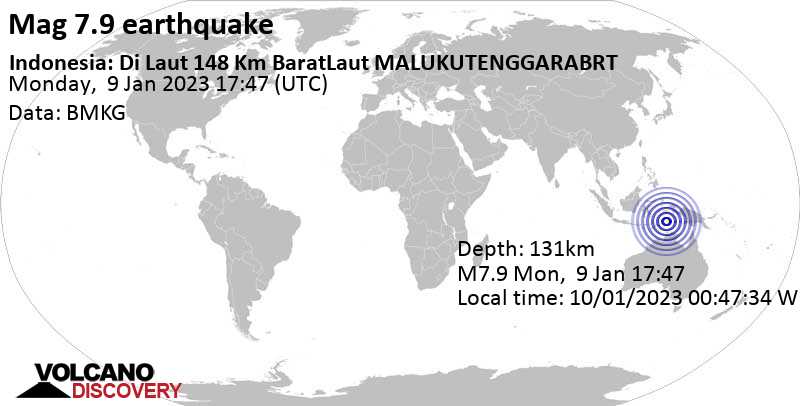Indonesia’s president expressed profound regret on Wednesday for the state’s past human rights violations that resulted in hundreds of thousands of deaths over decades.
But apologies aren’t enough for rights activists and some victims’ families, who say perpetrators of past atrocities need to be brought to justice to end the impunity that Indonesian security forces appear to enjoy in the fledgling Southeast Asian democracy.
President Joko “Jokowi” Widodo listed 12 gross rights violations that occurred between the mid-1960s and 2003, and promised compensation for the abuses. These violations included an anti-communist crackdown in 1965-66, when an estimated 500,000 people were killed.
“With a clear mind and a sincere heart, I, as head of state of the Republic of Indonesia, acknowledge that serious human rights violations did occur in various incidents. And, I deeply regret these gross human rights violations,” he said at a press conference in Jakarta.
“I and the government are working really hard so that gross human rights violations will not happen again in Indonesia in the future.”
The president added that he and the government were “making efforts to restore the rights of the victims in a just manner.”
Jokowi is the second president to acknowledge gross human rights violations committed by the state, after Abdurrahman “Gus Dur” Wahid in 2000.
At that time, Abdurrahman specifically apologized to the families of the victims of the anti-communist purge in the 1960s. Gus Dur was Indonesia’s second president after the largest nation in Southeast Asia transitioned to democracy after 32 years of dictatorship under President Suharto, the former army general who rose to power after that bloody purge.
Other rights abuses include the kidnapping of activists in the dying days of Suharto’s rule in 1997-1998, riots that targeted ethnic Chinese at the height of the Asian financial crisis in May 1998, and widespread torture by security forces in Aceh during a separatist conflict from
1989-1998.
Last year, Jokowi formed a team for the non-judicial settlement of past human rights violations, led by Mohammad Mahfud MD, the top security minister.
In an interview with BenarNews in October, team member Makarim Wibisono said it would provide recommendations on compensation for the victims and their families, including physical rehabilitation, financial assistance, health insurance and scholarships.
‘Salt to the wounds’
Still, rights activists said the culture of impunity remains embedded among security forces in Indonesia, and more needs to be done.
Late last year, a court found a retired Indonesian military officer not guilty of charges stemming from security forces fatally shooting four teenage protesters in Papua’s Paniai regency in 2014.
Andreas Harsono, an Indonesia researcher at Human Rights Watch (HRW), welcomed Jokowi’s statement but said the government should do more, including bringing perpetrators to justice in a human rights court.
“That’s a good statement, but more steps are needed, such as revealing where the missing victims are or where their graves are,” he said.
“Many children [of abuse victims] don’t know where their parents are buried. They have no closure over what happened,” Andreas told BenarNews.
Anis Hidayah, a member of the National Commission on Human Rights (Komnas HAM), said she hoped victims of rights abuses would finally get justice
“We call on the president to commit to law enforcement so that cases of gross human rights violations that have been investigated by Komnas HAM can be acted on through legal proceedings at a human rights tribunal,” he said.
Maria Catarina Sumarsih, the mother of a student protester who was killed by security forces along with 16 others during 1998 anti-government rallies in Jakarta, said Jokowi’s expression of regret was not enough.
“What’s the point of apologizing if violence by security forces keeps happening? If cases are not brought to court, violations will continue to occur,” Sumarsih told BenarNews.
Usman Hamid, executive director of Amnesty International in Indonesia, concurred.
“An acknowledgment without bringing to justice those responsible for past human rights violations will only add salt to the wounds of the victims and their families. Simply put, the president’s statement is meaningless without accountability,” said Usman.
If the president is truly committed to preventing the recurrence of abuses, authorities must “effectively, thoroughly and impartially” investigate all those allegedly involved, he said.
“Ending impunity through the prosecution and punishment of perpetrators is the only way to prevent the recurrence of human rights violations and provide truth and justice to victims and their families,” he said, adding that perpetrators should “not be given government positions.”
Jokowi counts former generals linked to past abuses as his closest aides, including former special forces commander Prabowo Subianto, now defense minister, and former armed forces chief Wiranto.
Human rights groups say Indonesia has suffered a democratic backsliding under Jokowi’s leadership. They cite rampant restrictions on civil liberties and police surveillance.
In a report last October, rights NGO KontraS said the climate of freedom had worsened in the three years of Jokowi’s second term, with cases of arbitrary arrests and attacks on government dissidents.
In 2020, 5,198 students were arrested with no clear charges, 87 of them imprisoned, said KontraS.
In December, rights groups blamed Indonesian police and soldiers for scores of extrajudicial killings in the past year, including many in the troubled Papua region.
Amnesty International said 36 people were killed by security forces and separatist rebels in the Papua and West Papua provinces last year, an increase from 28 in 2021.
The Papua region, at Indonesia’s far-eastern tip, has been the site of a decades-old separatist insurgency where both Indonesian security forces and rebels have been accused of committing atrocities against civilians.




































